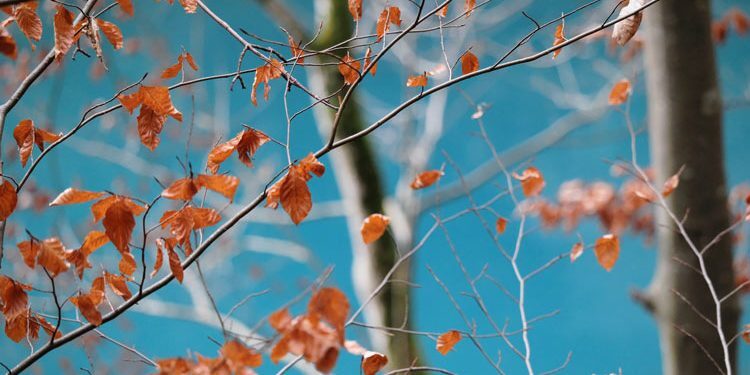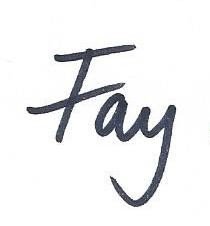I want to be like the maples,
letting go so easily of their leaves
in the slightest autumn breeze,
surrendering every piece of themselves
they no longer need, and embracing bareness
like a new suit they can simply step into.
But I’m more like the beech trees,
which cling to the husks of their leaves
long into spring, refusing to give up
even a scrap of who they once were
until the last possible minute.
Perhaps they need the reassurance,
or maybe they’re here to lend music
to the silence of winter, leaves
beaten thin as tissue paper rustling
a lonely chorus in the snow-covered woods—
until buds push up to the surface,
and with no other choice, they say yes
to the final scatter and release,
seeing again, as if for the first time,
how loss leaves room for something new.
by James Crews
There’s a beautiful Zen koan that goes like this:
A monk asked Yun Men, “How is it when the tree withers and the leaves fall?”
Yun Men said, “Nothing but the body exposed in the Golden Wind.”
The other day I went for a run in the beech woods near where my parents live. Out of breath I sat down leaning on one of the very tall majestic beech trees and rested. The woods felt like a cathedral with the tall arched roof of the branches above me.
Every so often there would be a rustling here or there in the canopy above, and then a gentle leaf shower would fall, just from where the little flurry of wind had kissed the tree tops. Then after a pause the wind would blow up a fluster somewhere else, another little shower of pirouetting golden leaves… and then again somewhere else. I was enchanted. I watched the leaves falling – each one joining the leaf carpet with the lightest elegance.
I contemplated how all things descend like this eventually. I also tried to square this up with the uneasiness of aging, and the seeming cruelty of how this can be as we grow older – illness and less ability both mental and physical, having to let go of doing things you loved to do, having to face an emptier and slower life. My parents were on my mind.
Perhaps beneath it all is the bareness, the vulnerability, that both the koan and the poet James Crews speak of. Stripped back to the fragility and brittleness of our human bones – body exposed – can we surrender a little bit, can we let ourselves be taken by the Golden Wind? How might this feel in our practice when we sit with the breath? Might this help to prepare us for the aging process?
And is there nobility in the vulnerability perhaps? Or on the other hand, like Crew says, is there something just so touching about our holding on? Perhaps we can lovingly accept our holding on as a sign of our all too human heart – how we hold on to what we hold dear, beyond it’s time. How we hold on and hold on until there can be no more holding on and we just have to give in to the loss.
Is it even possible to accept the grimness of life? The life without the positive spin? For me today doesn’t feel like a day for sugar-coating the realities with lovely ideas. A line from Kahlil Gibran’s The Prophet comes to mind:
“…And you would accept the seasons of your heart, even as you have always accepted the seasons that pass over your fields.”
Even the grim view can pass through, giving way to moments of blessing where we again feel touched by the Golden Wind.
PS. Being aware of the wonder of life and the small blessings, can help us live in the moment, even in challenging times. Check out The Wonder of the Everyday course and begin 2023 with a fresh perspective on your life…
Photo by Alpert WANG on Unsplash



